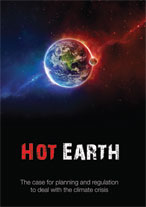Alexei Tolstoy
No, I haven’t made a mistake and misspelled the name of the author of War And Peace. Appropriately, in this centenary year for the October Revolution, I have been re-reading Alexei Tolstoy’s great trilogy about that turbulent time, Ordeal (whose Russian title actually translates as Road to Calvary). A great nephew of the author of War And Peace, Alexei was also related through his mother to the writer Ivan Turgenev. Not surprising, perhaps, given his antecedents, that when he finally began writing – at his mother’s prompting in his teens – the words flowed readily.

Like the majority of Russian intellectuals in the first decade or so of the 20th century, Alexei Tolstoy was vaguely in favour of anti-monarchist revolution, but had no idea of what it would mean in practice or how it could be carried out. Although he had inherited the title of Count, when the Great War began in 1914 he was revolted by the indifference of the Russian aristocracy to the sacrifices and loss of life among the peasantry who made up most of the common soldiers in the Tsarist army.
In February of 1917, after three years of disastrous war, the Russian bourgeoisie sought to head off the rising popular anger and discontent by overthrowing the Tsar themselves and installing a supposedly “democratic” capitalist regime under Alexandre Kerensky. Alexei Tolstoy probably welcomed the February Revolution as long overdue, but when Kerensky’s government sought to continue the War and opposition to it grew even stronger, the Socialist Revolution of November 1917 (October in the old, faulty Tsarist calendar in use in Russia at the time) thoroughly discombobulated him.
Tolstoy was confused and unprepared for such a far-reaching social change as the October Revolution initiated, or for the privation and hardship that accompanied it. Like so many other intellectuals (especially upper-class intellectuals) he fled to the South of the country where the Whites claimed to be preserving the traditions of Russia. When the Whites were defeated Tolstoy joined them in fleeing abroad with his family, first to the Russian émigré community in Paris and then to the even larger community in Berlin.
While still living in France, Tolstoy began writing the first volume of The Road to Calvary (the volume is subtitled The Sisters) which takes its middle-class characters Dasha and her sister Katya and the men they love (Telegin and Roshchin) through the period from 1914 to the eve of the Revolution in 1917. Written while he himself was an émigré, the book faithfully reflects the confused hopes and aspirations of Russia’s middle class intelligentsia before the Revolution as well as their often ludicrous pursuit of “intellectual” fads and follies.
After his removal to Berlin, Tolstoy mixed with émigrés who were not as hostile to the Soviet regime as he had previously encountered. They included Ilya Ehrenberg, Mayakovsky, Yesenin and Pasternak. After a time, he even began collaborating with Maxim Gorky on a pro-Soviet journal, Nakanune.
The literary life of the Russian diaspora in Berlin may have been in ferment, but they knew they were cut off from their roots, and as the Soviet regime consolidated itself in the 1920s and boldly prepared to begin building a new society, many of the ex-pats began thinking of returning home. Ilya Ehrenburg said of Alexei Tolstoy at this time, “He once said to me, ‘You’ll see, no literature will come out of the emigration. Emigration can kill any author within two or three years.’ He knew that he would soon be going home.”
Writers and other artists who had fled the Revolution and now returned found themselves welcomed and honoured. It was a different country that they returned to, one that was full of optimism for the future despite the privations and shortages caused first by the Intervention and the Civil War and then by the capitalist blockade. It was also one in which artists were held in high esteem, especially those who had returned in order to throw in their lot with the masses of the working people struggling to develop the new Soviet Russia.
Tolstoy returned to the USSR in 1923, and produced a political science fiction tale, Aelita, which was made into a pioneering sci-fi movie in 1924. He also resumed work on the second and third volumes of the Ordeal trilogy, both volumes taking his characters through the turmoil of the Civil War, from 1918 to its successful conclusion. Tolstoy finished writing the third volume on the day the Nazis invaded the USSR (June 22, 1941).
While working on that trilogy, Tolstoy also found time to write other works, including plays, novels, screenplays and children’s tales. Between 1929 and 1934, he wrote the first volume of his mammoth historical novel Peter the First. Although he was never to finish the novel, we know the outline of it because in 1937 and 1938 a very enjoyable epic Soviet film adaptation was made in two parts (one each year) for which Alexei Tolstoy wrote the screenplay.
As well as writing, Tolstoy attended international anti-Fascist conferences in the ’30s and, after the USSR was invaded by the Nazis, played a major role in investigating the crimes committed by the German fascists in the Stavropol region. Tolstoy directed the investigation by the Extraordinary State Commission investigating mass exterminations in the region, and proved that the Nazis had gassed hundreds of people in mobile gas vans, evidence that was used at the Nuremberg war crimes trials.
Alexei Tolstoy won the Stalin Prize in 1941 for his novel Peter the First and in 1943 for The Ordeal trilogy. He died in February 1945.
If you look him up on Google, you will find a viciously anti-Soviet (and consequently, anti-Tolstoy) entry that makes copious use of material from “his distant relative, the conservative author, historian and ardent monarchist Nikolai Tolstoy”, and “Professor Gleb Struve, a former White Army soldier and committed anti-Communist”. Well, so long as they’re not biased, I guess it’s OK, wouldn’t you say?













